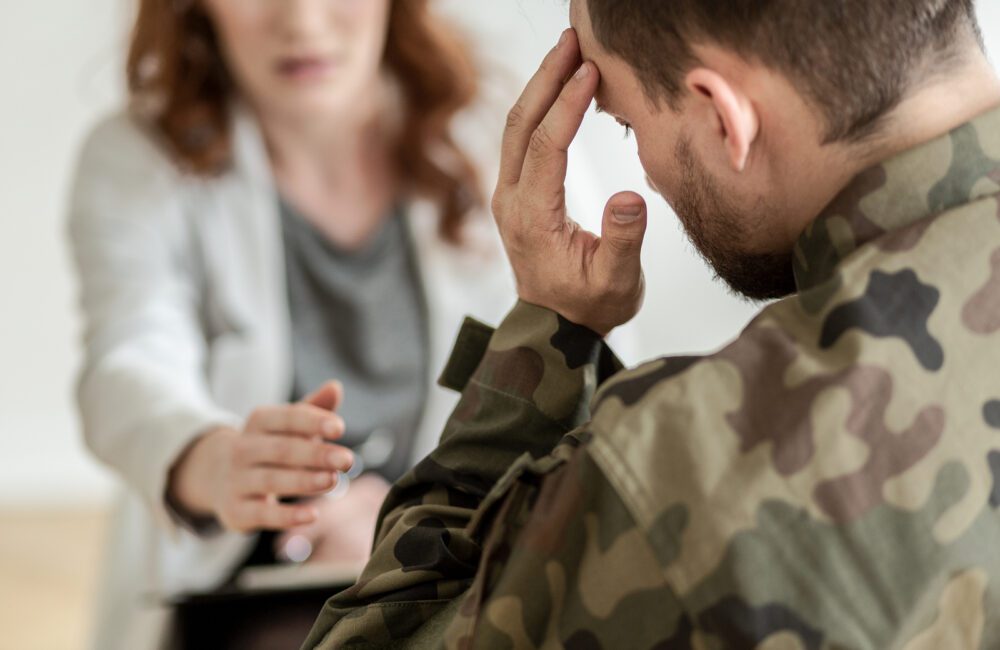The 4 Trauma Responses
Everyone responds to trauma, even when we don’t realize it. Some of us respond in more healthy ways than others. You might feel stuck because of your unhealthy trauma responses—if that’s the case, therapy can guide you through more healthy coping skills. By understanding the four trauma responses, you can learn how you tend to behave in distressing situations.
What is a Trauma Response?
Any time we undergo a traumatic experience, our bodies go through the trauma response cycle. It’s an evolutionary process—when animals encounter a life-threatening situation, they need to engage in one of several behaviors to get out of it.
Now that we’ve evolved, any number of daily interactions can set off our trauma responses. Being catcalled, arguing with a parent, getting passed up for a promotion, or disagreeing with your partner about parenting styles can all send you into a trauma response. It’s important to know how you tend to respond in stressful situations so you can heal better. Trauma responses are neither bad nor good. But they can result in healthy or unhealthy behavioral patterns, which can impact your relationships, emotional regulation, and ability to function in your daily life.
Fight
We can define the fight response as an attempt at self-preservation. Think of a wild animal backed into a corner, fighting for its life. You react aggressively and assertively against your perceived threat in an attempt to regain control.
When it’s healthy, a fight response enables you to set strong boundaries with people, lead others, be courageous, and show assertiveness. But when it’s unhealthy, it can manifest as bullying, controlling behaviors, violence, and narcissistic tendencies.
Flight
When you engage in a flight response, you avoid what’s causing you distress. You’ve assessed that fleeing from danger will keep you safe. You’ll do whatever you can to dodge conflict.
When it’s healthy, a flight response allows you to disengage from upsetting situations, leave bad relationships, and remove yourself from physical and emotional danger. But an unhealthy flight response means obsessive or compulsive behaviors, persistent feelings of panic or impending doom, shutting yourself off from others, and losing yourself in your work to escape from distressing situations.
Freeze
A freeze response is like when an opossum plays dead to make a predator believe they’re not worth pursuing. When your brain becomes overloaded by stress, you might shut down. This “paralysis” is another way of avoiding your stressor.
Healthy freeze responses are engaging in mindfulness and full presence in a stressful moment. But an unhealthy freeze response could mean memory problems, brain fog, dissociation, indecisiveness, or a fear of trying new things.
Fawn
A fawning response is defined as appeasing another person’s aggressive behavior. You might think of it as the peacemaker’s response. When you’re fawning, you’re avoiding conflict by trying to get someone else’s approval and calm their aggression.
A healthy fawn response can mean engaging in active listening, compassion towards others, and compromising. But when it’s unhealthy, a fawn response can look like people-pleasing, remaining in abusive relationships, codependency, and a loss of identity.
Can Trauma-Focused Therapy Help?
Trauma responses are not always maladaptive. But it can be hard for the average person to learn how to complete their trauma cycle independently. If you feel like your trauma responses have impacted your daily life, it’s probably time to talk to a therapist. There are many psychotherapeutic techniques to address how your past trauma influences your behavior and how to deal with traumatic experiences in the future.
To find out more about how therapy can help you understand your trauma cycle, please reach out to us.

